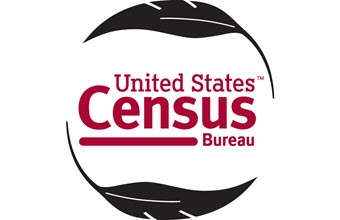
- Details
- By Levi Rickert
OPINION The COVID-19 pandemic may yield more damage than the tragic deaths of our fellow Americans — which tragically surpassed 160,000 on Thursday — and the worst economy since the Great Depression.
This past Monday the U.S. Census Bureau announced it would slash one month off the counting of the nation’s hard-to-count (HTC) tracts, which the bureau refers to as being in remote or difficult areas. With the reduction, enumerating would need to be done within the next six weeks instead of the October deadline.
Three leading national American Indian organizations, the National Congress of American Indians (NCAI), the Native American Rights Fund (NARF) and the National Urban Indian Family Coalition (NUIFC), called the announcement an unwarranted and irresponsible decision because of its negative impact on Indian Country.
Four of ten households in the United States live in areas deemed hard-to-count. Many American Indians and Alaska Natives fall into the hard-to-count category. According to data supplied by the Census Bureau, in New Mexico, 78.6 percent of American Indians live in HTC tracts; it’s 68.1 percent in Arizona, 65.6 percent in Alaska, 52.4 percent in South Dakota and 49.9 percent in Montana.
To prevent undercounts in HTC tracts, the Census Bureau sends census takers to homes. Tribes throughout Indian Country have been working closely with the Census Bureau to overcome the barriers to prevent undercounts of their tribal citizens.
The number of people counted in the census helps predicate how federal dollars are allocated and provide the basis for drawing congressional district lines in the United States.
Since funds directed to tribes are predicated on data generated by the Census Bureau, getting an accurate and complete count is essential to meet the bare minimum needs of tribal citizens.
In the 2010 Census, the Census Bureau estimated that American Indians and Alaska Natives on reservations, Native Alaskan villages and in urban settings were undercounted by about five percent, which represents double the rate of the next closest population rate. Back in 1990, the net undercount was estimated to be 12.2 percent.
The slashing of the month of October by the Trump administration is troubling to Indian Country.
The COVID-19 pandemic has added a dual threat of undercount among American Indians and Alaska Natives in this census count. Exacerbating the fear of undercounts on American Indian reservations is the fact that Indian Country has been disproportionately hit hard by the COVID-19 pandemic.
In hot spots such as the Navajo Nation, where, as of Saturday, there have been a total of 9,293 of COVID-19 cases and a death toll of 470. Because of the huge negative impact due to COVID-19 cases, the Navajo Indian Reservation has taken measures to contain the further spread of the deadly virus, such as lockdowns and curfews. These measures have presented a huge challenge to Navajo citizens’ participation in this year’s census. Needless to say, when someone is faced with a life or death situation, filling out a census does not take high priority.
As of Friday, only 15 percent of reservation residents have responded to the census form. The national response rate, meanwhile, is 63.1 percent.
A random scan of other American Indian reservations and tribal nations response rates is cause for alarm. As of Friday, the Red Lake Indian Reservation in Minnesota had a response rate of 5.7 percent; Crow Nation in Montana is at 9.1 percent; Rosebud Indian Reservation in South Dakota is at 17.7 percent; Tohono O’odham Nation in Arizona is at 16.3 percent; and San Carlos Indian Reservation in Arizona sits at 10.9 percent.
Unless there is a significant drive from now until the end of September, Indian Country will be tremendously undercounted this census cycle. The result will have devastating impacts on housing, education, health and employment services tribes can provide to their citizens.
“Our tribal nations and tribal communities have been ravaged by COVID-19, and an extension of the Census enumeration period was a humane lifeline during an unprecedented global health catastrophe that provided critically needed additional time to tribal nations to ensure that all of everyone in their communities are counted,” NCAI, NARF and NUIFC wrote in a joint statement released last week.
Not only do the three organizations object to the reduction of the enumerating period by a month, they feel that because of the pandemic the period should be extended in the next COVID-19 Congressional stimulus package.
Native News Online supports this position in order to prevent more damage to Indian Country as a result of the pandemic.
More Stories Like This
The SAVE America Act Threatens Native Voting Rights — We Must Fight BackThe Presidential Election of 1789
Cherokee Nation: Telling the Full Story During Black History Month
Jesse Jackson Changed Politics for the Better
Native News Online at 15: Humble Beginnings, Unwavering Mission
Help us defend tribal sovereignty.
At Native News Online, our mission is rooted in telling the stories that strengthen sovereignty and uplift Indigenous voices — not just at year’s end, but every single day.
Because of your generosity last year, we were able to keep our reporters on the ground in tribal communities, at national gatherings and in the halls of Congress — covering the issues that matter most to Indian Country: sovereignty, culture, education, health and economic opportunity.
That support sustained us through a tough year in 2025. Now, as we look to the year ahead, we need your help right now to ensure warrior journalism remains strong — reporting that defends tribal sovereignty, amplifies Native truth, and holds power accountable.
 The stakes couldn't be higher. Your support keeps Native voices heard, Native stories told and Native sovereignty defended.
The stakes couldn't be higher. Your support keeps Native voices heard, Native stories told and Native sovereignty defended.
Stand with Warrior Journalism today.
Levi Rickert (Potawatomi), Editor & Publisher

